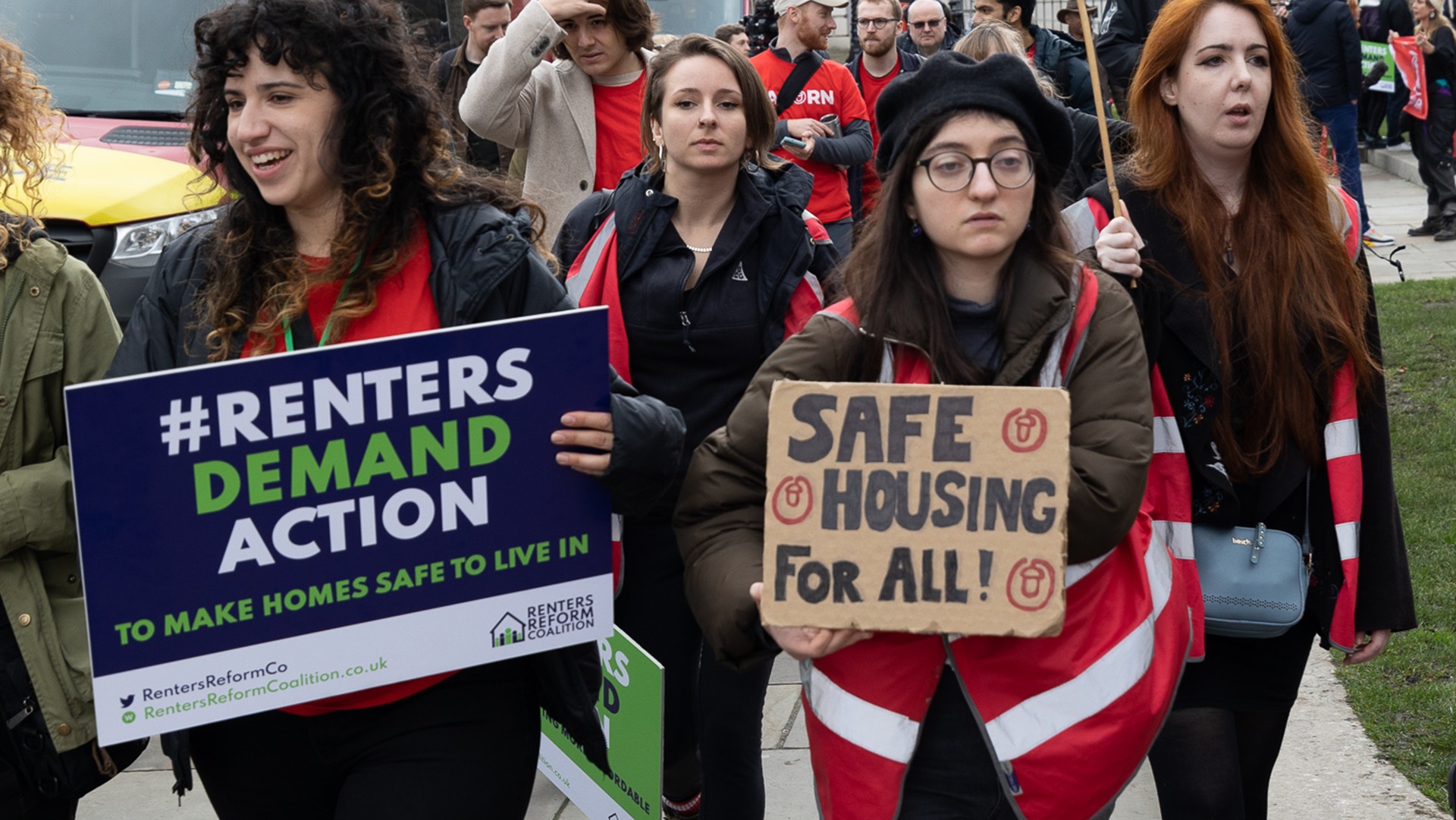Angela Rayner, Labour’s shadow housing secretary, said: “After four and half years of foot-dragging over Tory promises, there can be no more dither and delay in ending no-fault evictions.
“At the height of a cost-of-living crisis, tenants have been left paying a heavy price for the government’s inaction with tens of thousands threatened with homelessness and receiving visits from the bailiffs.
“Labour welcomes the long-awaited second reading of the Renters Reform Bill, but we will look to strengthen it to ensure it meets the scale of the housing crisis this Conservative government has created.”
MPs on the Levelling Up Committee have previously suggested a dedicated housing court as a solution to eviction cases clogging up civil courts.
But the government has repeatedly rejected this suggestion and has instead opted to digitise the wider court process, even if it means tenants face longer waits for no-fault evictions to be scrapped.
Ben Beadle, chief executive of the National Residential Landlords Association, welcomed the government’s decision to reform courts first.
Advertising helps fund Big Issue’s mission to end poverty
Ending no-fault evictions is the headline measure of the Renters Reform Bill to reduce insecurity and homelessness for tenants and was first promised by Theresa May’s government in April 2019.
More broadly, the law is set to give tenants stronger rights to reset the balance of power with landlords.
That means greater powers for tenants to keep a pet with a judge set to decide on whether landlords have been unreasonable in refusing.
Rent reforms also include bringing in a decent home standard, creating a private renting ombudsman and banning landlords from excluding families with children and people on benefits from renting properties.
There is strong public support for no-fault evictions to be scrapped, according to new polling from Opinium on behalf of the Renters’ Reform Coalition (RRC) – a group of renter-focused organisations including Shelter and Generation Rent.
Your support changes lives. Find out how you can help us help more people by signing up for a subscription
Advertising helps fund Big Issue’s mission to end poverty
More than 70% of the 4,295 voters quizzed between 17 and 20 October said they supported no-fault evictions ending.
The polling also suggested just 15% of private renters currently intend to vote Conservative at the next general election.
Tom Darling, campaign manager at the RRC said: “There’s a particular warning for the Conservative Party who, perhaps contrary to the received wisdom, had one in four of their voters from 2019 live in the private rented sector. That support is now in free fall.”
The bill has faced delays in recent months amid speculation it has faced opposition from Tory MPs.
Housing secretary Michael Gove reportedly wrote to Tory MPs, according to LBC, to appease MPs in his party – a move Labour has described as a “grubby deal”.
Of the 87 MPs who earn an income from residential property, 68 are Conservatives, according to research from campaign group 38 Degrees.
Advertising helps fund Big Issue’s mission to end poverty
The landlord lobby has also suggested but more red tape and restrictions on landlords could lead to an exodus that makes private renting even more costly.
Andy Cook, chief executive of the think tank Centre for Social Justice, said that claims of a landlord exodus had been exaggerated, insisting larger landlords have taken the place of smaller buy-to-let owners who have dropped out of the market.
“The independent impact assessment for this bill shows that average net costs to landlords are minimal, at £10 per tenancy,” he said. “No-fault evictions were ended in Scotland in 2017, and we haven’t seen an exodus.”
But the Renters Reform Bill doesn’t offer an answer to the skyrocketing prices in the private rented sector.
New research from the Office for National Statistics, release on Monday, found the median rent of £795 a month typically made up 26% of household income in England as of March 2022.
But London was the least affordable region with households paying the equivalent of 35% of median income.
Advertising helps fund Big Issue’s mission to end poverty
Get the latest news and insight into how the Big Issue magazine is made by signing up for the Inside Big Issue newsletter
Meanwhile, low-income renters in all but two regions of England were paying more than 30% of their household income on rent – the point at which experts deem rents unaffordable. The problem is particularly acute in London where lower-priced rents are typically equivalent to 46% of incomes.
Ben Leonard, policy officer at coalition member and renters union ACORN, said: “Without a cap on rent rises linked to inflation or local incomes, then rent hikes will still be a means that landlords can use to turf tenants out by the back door.”
The RRC poll found 68% of those quizzed supported its measures to prevent private rents increasing above wage or price inflation.
The Big Issue’s End Housing Insecurity Now campaign has called on Rishi Sunak to unfreeze local housing allowance rates and reform universal credit to keep 9 million tenants on low incomes in their homes.
We’re calling on the prime minister to make sure everyone can afford to stay in their homes and pay for the essentials. Will you join us and sign the petition?
Advertising helps fund Big Issue’s mission to end poverty
Do you have a story to tell or opinions to share about this? We want to hear from you. Get in touch and tell us more.






